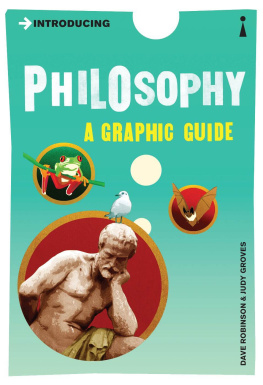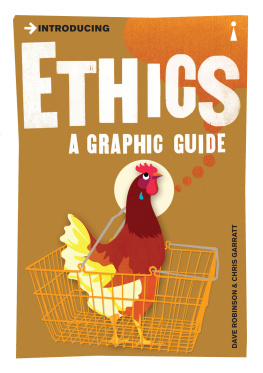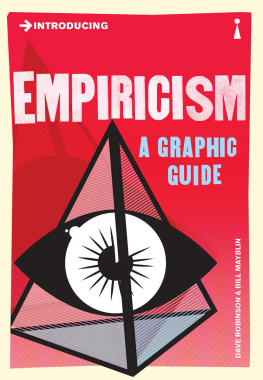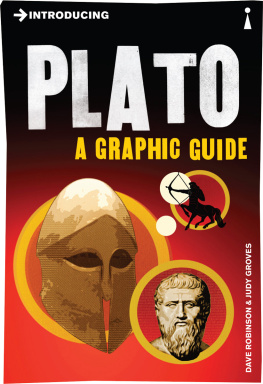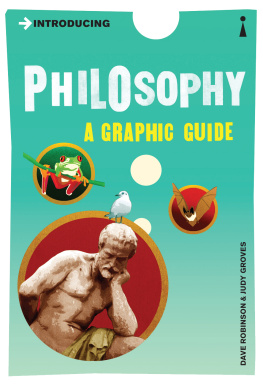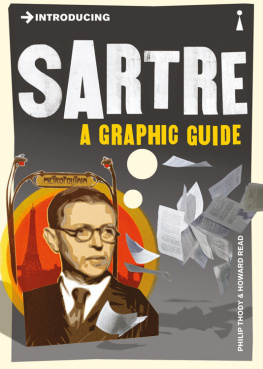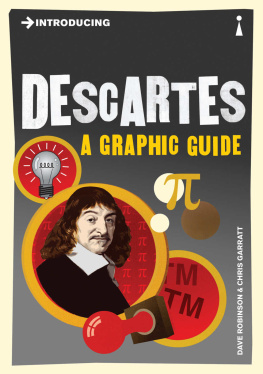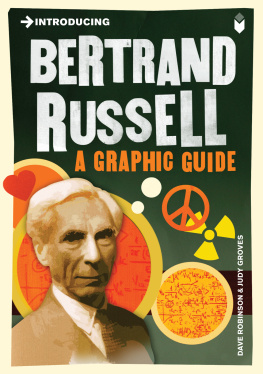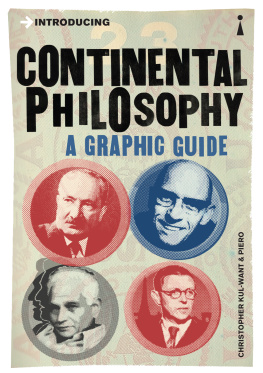Published by Icon Books Ltd, Omnibus Business Centre, 39-41 North Road, London N7 9DP
email:
www.introducingbooks.com
ISBN: 978-184046-853-3
Text copyright and illustrations copyright 2013 Icon Books Ltd
The author and artist have asserted their moral rights.
Originating editor: Richard Appignanesi
No part of this book may be reproduced in any form, or by any means, without prior permission in writing from the publisher.
Contents
QUESTIONS
Most people are usually too busy to go in for the sort of thinking usually called philosophical. This is because they have to spend their time struggling for existence or because they rather enjoy living lives of undisturbed routine. But, on rare occasions, a few awkward and irritating individuals with time on their hands ask deceptively simple questions which never seem to have simple answers.
WHAT IS THE NATURE OF REALITY? WHAT ARE HUMAN BEINGS REALLY LIKE?
WHAT IS SPECIAL ABOUT HUMAN MINDS AND CONSCIOUSNESS?
CAN WE BE CERTAIN ABOUT ANYTHING AT ALL?
ARE THERE OBVIOUS DIFFERENCES BETWEEN VALID AND IMPROPER ARGUMENTS? WHAT IS TRUTH? WHAT IS MEANING?
HOW SHOULD WE BEHAVE TOWARDS EACH OTHER AND HOW SHOULD WE ORGANIZE SOCIETY? ARE GOVERNMENTS A GOOD IDEA?
ARE WE REALLY FREE TO CHOOSE WHO WE ARE AND WHAT WE DO? IS SCIENTIFIC KNOWLWDGE BETTER THAN OTHER KINDS OF KNOWLEDGE?
WHAT IS PHILOSOPHY?
Questions of philosophy might not appear to have much to do with everyday survival. But philosophers still look for convincing answers. Sometimes they get them, often they dont.
BUT THE QUESTIONS, ONCE ASKED, SEEM NEVER TO GO AWAY. ORIGINALLY, PHILOSOPHERS WERE JUST INDIVIDUALS WHO ASKED QUESTIONS ABOUT EVERYTHING. NOWADAYS, PHILOSOPHY TENDS TO GET CLASSIFIED MORE RIGOROUSLY.
Some philosophers believe that philosophy must evolve out of argument and debate, others that it can only ever be produced from deductive reasoning.
SOME PHILOSOPHERS BELIEVE THAT PHILOSOPHY CAN MAKE REAL PROGRESS IN THE HUNT FOR KNOWLEDGE.
OTHERS SAY THAT IT IS THINKING ABOUT THINKING AND DOES NO MORE THAN HELP TO CLARIFY IDEAS AND REMOVE MISUNDERSTANDINGS.
But all of them believe that philosophers are obliged to provide some kind of explanation, proof or evidence for their ideas. And this obligation marks the one obvious difference between philosophy and religion.
THEOCRACIES
The Ancient Egyptians were very good at maths and at building geometric tombs, but theyre not famous for philosophy. Their religious explanations of things are elaborate and colourful but unconvincing in philosophical terms. The Babylonians were likewise wonderful mathematicians and astronomers.
BUT THEY TOO APPEAR SATISFIED WITH MYTHICAL ANSWERS TO FUNDAMENTAL QUESTIONS.
Theocratic societies governed by priestly castes are usually static and monopolize thought. They insist on orthodox explanations and actively discourage independent and unconventional ideas. Todays beliefs must always be like yesterdays.
THE GREEKS
The Ancient Greeks invented philosophy, but no-one really knows why. The Greeks were a great trading nation who dominated much of the eastern Mediterranean and borrowed myths and mysticism as well as architecture and mathematics from their neighbours. But some worrisome Greek philosopher-scientists thought there just had to be some kind of underlying order or logic for the way things are. They were not willing to accept religious explanations for Instance, thinkers like Xenophanes (c. 560478 B.C.).
IT IS NAIVE TO WORSHIP THE GODS BECAUSE THEY ALL BEHAVE IRRATIONALLY AND IMMORALLY. IF HORSES HAD HANDS AND COULD DRAW, THEY WOULD DRAW PICTURES OF GODS LIKE HORSES.
So the first Greek philosophers looked for answers which we would now call scientific rather than religious.
THE MILESIANS BIG QUESTION
The first real philosophers were some eccentric Greeks who lived in Miletus, a colony on what is now the Turkish coast, in the 6th century B.C. They asked The One Big Question what is reality made of? Actually, its a very strange question to ask. Most people would say that the world is made up of lots of different things, because it looks that way. But these Milesians didnt accept that what you see is necessarily the same as what is true.
EVERYTHING IS MADE OF WATER. IT IS MADE OF AIR. THERE IS A SORT OF FUNDAMENTAL STUFF FROM WHICH EVERYTHING IS CREATED AND TO WHICH IT MUST EVENTUALLY RETURN.
Anaximander also thought that the earth was like a large stone column. Not much is known about any of these strange early philosopher-scientists, except that their science was almost wholly cerebral and not experimental. But they would never accept answers which relied merely on supernatural explanations.
PYTHAGORAS AND MATHEMATICS
Pythagoras (571496 B.C.) asked the same One Big Question, but emerged with a very different answer. He thought that the answer was mathematics. He lived on the island of Samos, before he emigrated with his disciples to Croton in southern Italy. He was a vegetarian who believed in reincarnation and declared that eating beans was sinful. He and his disciples worshipped numbers and thought that the world was made of them, a truth most obviously revealed by ratios, squares and right-angled triangles. Pythagoras big breakthrough was to recognize that mathematical truths had to be proved rather than just accepted. His number mysticism looks to us very odd. He declared that Justice was the number 4, because it was a square number. He was finally shocked by his discovery of irrational numbers like Pi and 2.
THE RATIO OF THE CIRCUMFERENCE OF A CIRCLE TO ITS DIAMETER IS APPROXIMATELY 3,141 APPROXIMATELY? THIS SUGGESTS THAT THE WORLD ISNT AT ALL MATHMEMATICALLY NEAT AND PERFECT.
HERACLITUS AND THE WORLD IN FLUX
Heraclitus, who lived circa 500 B.C., would have been more tolerant of an irrational universe. His nickname was The Rudder because he maintained that everything in the world is always changing and in a constant state of conflict. He illustrated this by a famous saying.

